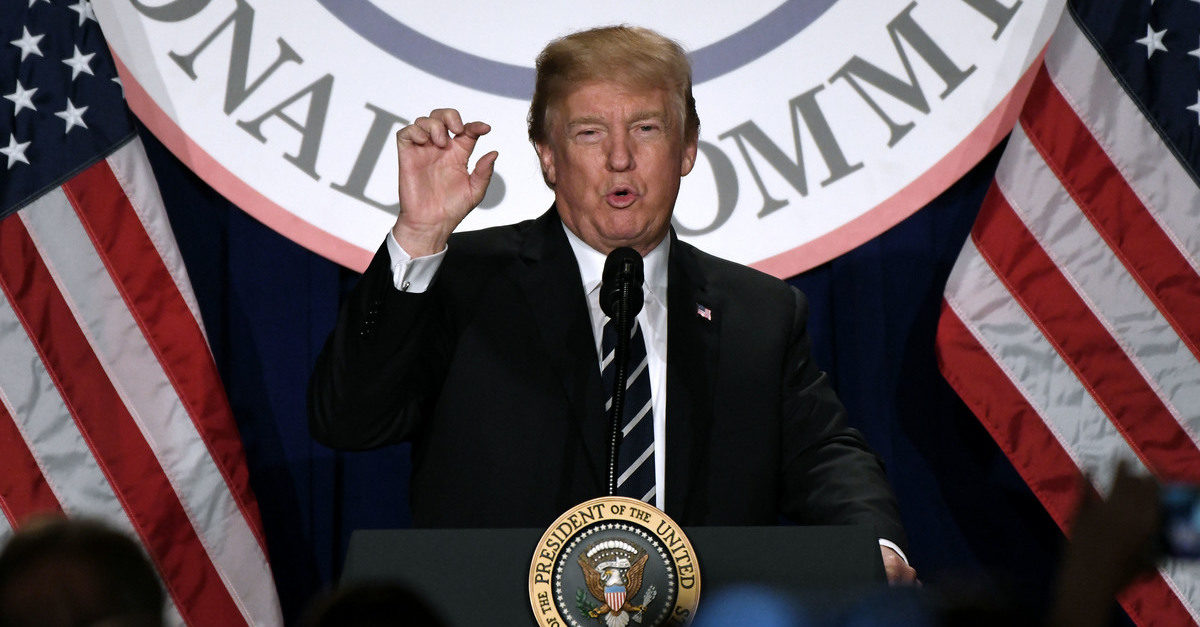 Within weeks of riding a populist wave to an electoral college victory in the 2016 presidential election, President Donald Trump and his supporters began likening the real estate mogul to rabble-rousing former president Andrew Jackson. But according to renown University of Connecticut American History professor Manisha Sinha, a far more apt comparison for current occupant of the White House can be found in a different presidential Andrew – that being Andrew Johnson.
Within weeks of riding a populist wave to an electoral college victory in the 2016 presidential election, President Donald Trump and his supporters began likening the real estate mogul to rabble-rousing former president Andrew Jackson. But according to renown University of Connecticut American History professor Manisha Sinha, a far more apt comparison for current occupant of the White House can be found in a different presidential Andrew – that being Andrew Johnson.
Sinha wrote that while “historical parallelism” is imperfect, it can be particularly useful under circumstances that allow historians to discern “broad similarities and patterns” that link two figures – and the similarities between Trump and Johnson are particularly apparent.
“[M]ost significantly, both men made an undisguised championship of white supremacy — the lodestar of their presidencies — and played on the politics of racial division,” Professor Sinha wrote in an op-ed for the New York Times Friday.
According to Sinha, Johnson was vehemently opposed to Reconstruction, which he referred to as the “Africanization” of America. In response, Johnson vetoed laws aimed at protecting former slaves from being terrorized by whites and perpetuated the racist myth that the emancipation and eventual citizenship of black citizens victimized whites in the South, a notion that became an “article of faith among Lost Cause proponents in the postwar South.”
“It is a myth that Mr. Trump seems to have fully bought into, given his defense of ‘beautiful’ Confederate statues and monuments,” Sinha wrote.
“Like Johnson, he uses derogatory language for people of color and he has expressed his preference for Nordic immigrants. Mr. Trump’s handpicked man in charge of immigration policy, the brain behind the separation of families in immigration detention camps, is Stephen Miller, who has recently been publicly revealed to be a white nationalist.”
Sinha noted that both men also appear to promulgate a conception of American nationalism that is “narrow, parochial, and authoritarian.” She cites Johnson’s opposition to the Fourteenth Amendment’s equal rights clause as comparable to Trump’s threat to revoke “birthright citizenship.”
In regards to their views on powers in office, Sinha wrote that both men held themselves up as being above the law.
“Johnson’s highhanded actions and disregard of Congress led to Thomas Nast’s famous ‘King Andy’ cartoon in Harper’s Weekly,” she wrote.
“Today Mr. Trump’s unaccountable style of governing reflects his Attorney General William Barr’s doctrine of unitary executive power, oblivious to the checks and balances and separation of powers in the Constitution.”
After drawing a number of striking similarities between the two men, Sinha lands at the conclusion that Trump, much like Johnson, poses an existential threat to American democracy.
“Johnson and Mr. Trump are both authoritarian demagogues who threatened the world’s longest lasting experiment in democratic republicanism. Democrats must convince the American people not only of Mr. Trump’s specific crimes, but of the very real danger that his continuing presence in office presents to the Republic.”
[image via Olivier Douliery-Pool/Getty Images]